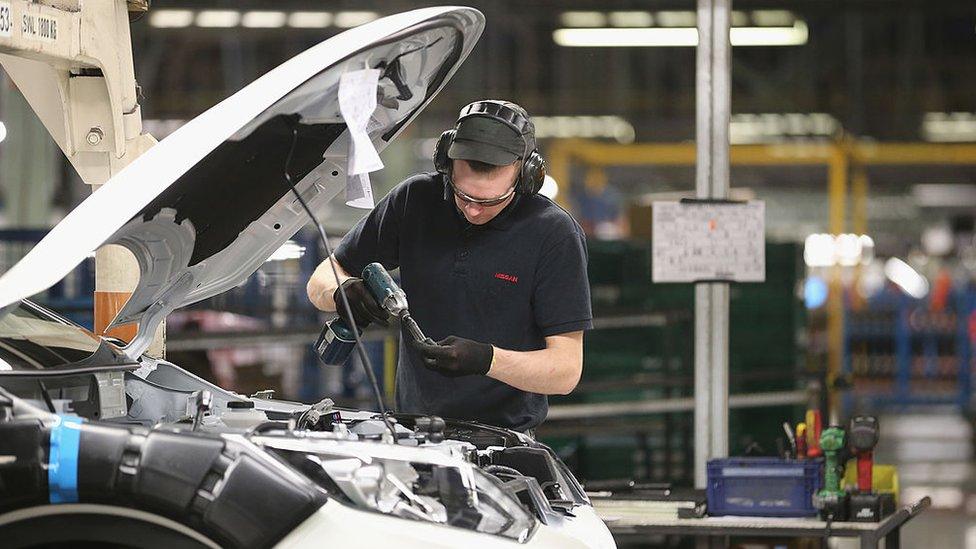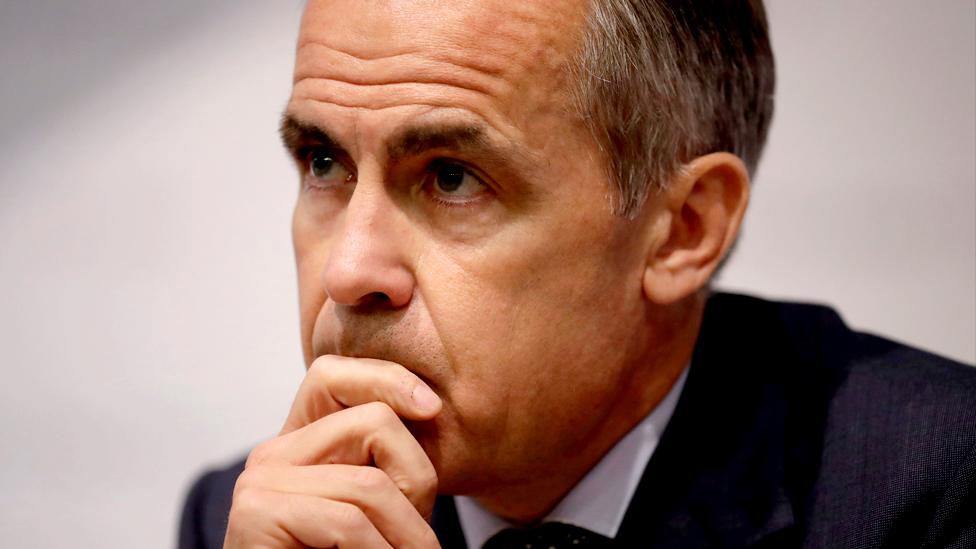Mark Carney warns of instant shock from no-deal Brexit
- Published
- comments
Shock of no deal would be instant, says Mark Carney
A no-deal Brexit would result in an instant shock to the UK economy, the governor of the Bank of England, Mark Carney, has warned.
Items such as petrol and food would become more expensive if the UK leaves the EU without an agreement, he said.
He predicted the value of the pound would fall in response to what he described as a "real economic shock".
"The change in trading relationship means that real incomes will be lower," he told the BBC's Today programme.
But he rejected claims that the Bank's decision to cut growth forecasts was gloomy, after former Tory leader Iain Duncan Smith accused him of reviving "project fear".
Mr Carney said "you're hard pressed" to describe the Bank's forecasts in that way.
Fundamental change
On Thursday, the Bank said the economy was expected to grow by 1.3% this year, lower than its earlier projection of 1.5%, if the UK leaves the EU with a deal.
It did not say what it expected to happen in the case of a no-deal Brexit.
But Mr Carney told the BBC there was a "significant possibility" that a deal would not be struck.
"The economics of no deal are that the rules of the game for exporting to Europe or importing from Europe fundamentally change," he said.
As a result, he said, "very big" and "highly profitable" industries in the UK would become "uneconomic".

Carmakers are among the firms that could be hardest hit, Mr Carney says.
"Very difficult decisions will need to be taken," he said, explaining that those would have a "knock-on" effect on the economy.
He pointed to carmakers, food manufacturers and chemical firms as some of those that would be hardest hit.
"These are the sectors that have not been investing," he said.
"One of the reasons why the economy has slowed is that business investment has been very, very weak."
Providing support
But Mr Carney said the Bank's response to a no-deal Brexit would not be automatic.
He explained the Bank would look at the effect on the economy of things such as car plant closures as well as a weakening pound before it decided how to respond.
"We will do everything we can in order to provide support to the economy," he said.
But he warned that a no-deal Brexit would be inflationary.
"Instantly, you have supply disruptions but you actually have businesses that are no longer economic."
Last month, the Office for Budget Responsibility warned that a no-deal Brexit would deal a £29.3bn blow to the UK economy.
'Project fear'
In comments on the front page of Friday's Daily Telegraph, Brexit-backing Mr Duncan Smith renewed his criticism of Mr Carney.
Ahead of the referendum in 2016, Mr Carney warned that the UK could fall into a recession if it voted to leave the EU - something that did not happen.
At the time, Mr Duncan Smith said the Bank of England governor needed to be "very careful" about making such comments.
On Friday, Mr Duncan Smith called Mr Carney "one of the architects and promoters of 'project fear'".
But speaking on the Today programme, Mr Carney said it was "not helpful" to deny that leaving "the most integrated economic relationship in the world" would have an impact on the economy.
- Published1 August 2019
- Published1 August 2019
